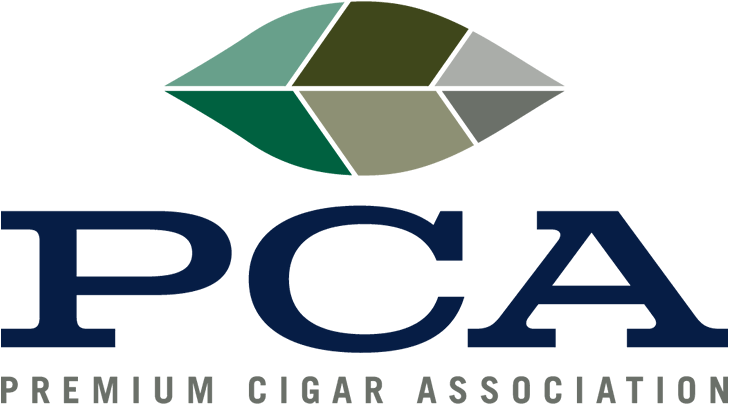Uncategorized
“One Big Beautiful Bill Act” Analysis
I. Summary
The One Big Beautiful Bill Act (H.R.1, 119th Congress) is a sweeping tax, spending, and policy package. Below is an analysis of its provisions that may positively or negatively affect members of the Premium Cigar Association, organized by topic. Each provision is identified with its potential impact on premium cigars, retailers, and manufacturers (benefit, risk, or uncertainty).
II. Tobacco Product Regulation (FDA & HHS)
BENEFIT: Regulatory Freeze on New Rules.
The act mandates a comprehensive “review of agency rulemaking.” In practice, this increases scrutiny and slows down new federal regulations. For premium tobacco retailers, a slower pace of FDA/HHS rulemaking means fewer imminent changes to tobacco-product regulations, reducing short-term compliance.
UNCERTAINITY: Future Regulatory Outlook.
While the freeze provides immediate relief, it also creates uncertainty. The Office of Management and Budget (OMB) and Government Accounting Office (GAO) are funded to review rules through 2034, which could result in changes or rollbacks to some regulations down the line. It’s unclear how tobacco rules will fare under this retrospective review.
III. Small Business and Employment Law Changes
BENEFIT: Expanded Small Business Tax Deduction.
The bill makes permanent and expands the 20% qualified business income deduction to 23% for small businesses. This greater “pass-through” deduction (effective beginning 2025) directly lowers taxes for many cigar shops organized as S-corps, LLCs or sole proprietorships. PCA members could retain more profit to reinvest in their stores or hire staff, a clear financial benefit. As one analysis notes, the act “increases the small business tax deduction used by 26 million entrepreneurs… from 20% to 23%”, thereby further reducing effective tax rates for Main Street businesses (including tobacconists).
BENEFIT: “No Tax on Tips and Overtime” Provisions.
Responding to labor concerns, H.R.1 includes populist measures eliminating federal income tax on certain tip income and overtime wages.
Specifically, employees can now deduct “qualified tips” and “qualified overtime compensation” from their taxable income (up to defined caps).
This means through 2028, retail workers’ gratuities and overtime pay are effectively tax-free at the federal level. For PCA members who operate cigar lounges or bars where staff receive tips, or who require hourly staff to work overtime during events, this is a potential benefit. Employees may take home more pay, improving morale and retention, and employers might find it easier to fill extra shifts.
(Note: Employers should ensure proper payroll reporting so that workers can claim these deductions accurately – a new administrative consideration.)
BENEFIT: Stable Labor Compliance Environment.
The act does not impose new federal minimum wage hikes, paid leave mandates, or other costly employment regulations on small businesses.
Aside from the tax changes above, labor laws remain generally unchanged. This consistency is a relief for cigar retailers already navigating complex labor rules. For example, there were no provisions altering overtime eligibility or reclassifying independent contractors.
By avoiding new mandates, the bill spares small retailers additional compliance costs (a quiet but important benefit).
UNCERTAINITY: Immigration and Hiring Impacts.
The bill’s emphasis on border security (e.g. funding 10,000 new ICE officers and border wall construction) comes alongside a new 3.5% excise tax on remittances (money transfers sent abroad by individuals in the USA). Some important notes on the inclusion of remittances: the original text would have seen a 5% remittance tax put in place, but due to the major pushback from industry, and countries, it was lowered to 3.5%. Additionally, those who utilize a social security number when sending money should be able to use all remittance tax paid as a credit towards their federal tax owed, at the time of tax filing.
While aimed at immigration enforcement, these measures could indirectly affect labor availability in some regions. Cigar store owners may experience a tighter low-wage labor pool if undocumented workers leave or see local customers with family abroad having slightly less disposable income due to the remittance fee.
These effects are speculative – overall, legal hiring rules for businesses remain the same, but retailers should be mindful of any local workforce shifts (an area of uncertainty).
IV. Import/Export and Trade Policies
BENEFIT: General Trade and Export Promotion.
The act contains pro-trade measures that could indirectly aid the premium cigar sector. It authorizes a “Supplemental Agricultural Trade Promotion Program” to bolster U.S. exports and extends various farm trade programs.
Increasing overall agricultural export support may strengthen trade relationships with countries that produce premium cigars or cigar tobacco. Additionally, investments in port infrastructure and customs enforcement (e.g., funds for border facilities and U.S. Customs and Border Protection in Title VI) aim to streamline trade flows.
Over time, more customs personnel and modernized facilities could mean faster import processing for cigars and accessories coming into the U.S. (a modest benefit in logistics). These indirect upsides, while real, are incremental.
RISK: Higher Shipping Costs.
To help fund infrastructure, the bill raises certain maritime fees. Notably, it amends vessel tonnage duties (harbor fees) by eliminating the previous cap on rates.
In practical terms, cargo ships entering U.S. ports will likely pay higher tonnage taxes than before. Such costs may be passed along to importers. Premium cigar retailers – who import most of their inventory from Nicaragua, Dominican Republic, Honduras, etc. – could see slightly increased shipping and freight costs as a result.
Any rise would be marginal on a per-box basis, but over a year it can trim profit margins (risk). Retailers should monitor shipping invoices for any fee upticks and budget accordingly.
V. Agricultural and Rural Economic Policies
BENEFIT: Farm Bill Programs Extension & Rural Investment.
Title I of the act reauthorizes and updates major agricultural programs, many of which were set to expire with the 2018 Farm Bill. It extends the farm safety net, crop insurance, conservation programs, and rural development initiatives.
For rural communities and states with tobacco agriculture, this is broadly positive. While premium cigar tobacco is a niche crop, keeping general farm programs funded (e.g., disaster aid, insurance subsidies) helps any growers of cigar wrapper or binder leaf remain resilient.
Moreover, the “Investment in Rural America” subtitle provides funding for rural infrastructure (e.g. rural broadband, electrification), forestry, and energy projects. Healthier rural economies mean more stable employment and income in those areas.
VI. Taxation Changes (Excise Taxes and Credits)
BENEFIT: Extended Tax Cuts for Individuals and Small Businesses.
The act fulfills its core purpose of extending and expanding the 2017 Tax Cuts and Jobs Act (TCJA) provisions. It prevents scheduled tax rate hikes on individuals by keeping income tax brackets at their lower levels for another decade.
For PCA members, this means continued lower federal income taxes. Notably, pass-through businesses benefit doubly: not only is the small business income deduction increased (as discussed), but the Section 199A deduction is also made permanent, avoiding a looming 2026 sunset.
These extensions “ensure a more competitive, pro-growth tax system,” according to the Business Roundtable. In practical terms, a cigar shop owner can plan for steady tax rates and deductions, which aids in budgeting for expansion or new hires (clear benefit).
BENEFIT: Business Expensing and Credits.
Several pro-business tax provisions will help retailers who invest in their operations. The bill restores 100% immediate expensing for capital investments (bonus depreciation) through at least 2028. If a shop builds a new walk-in humidor, upgrades its lounge, or purchases a new point-of-sale system, it should be able to write off the full cost in the year of purchase, freeing up cash.
VII. Other Indirect Provisions (Shipping, Infrastructure, Energy Costs)
RISK: Potential State Action on Tobacco.
With numerous federal changes in place, advocacy groups note that attention may turn to state governments. The act’s reductions in federal programs (e.g., SNAP, Medicaid) could pressure states to fill gaps or cut budgets elsewhere.
One concern is that states might seek new revenue by raising tobacco taxes or imposing flavor bans to both generate funds and pursue health goals.
While not caused by the bill per se, this is a knock-on risk to monitor. PCA will need to stay engaged at the state level to protect retailers from any such moves that might follow in the wake of federal austerity measures.

